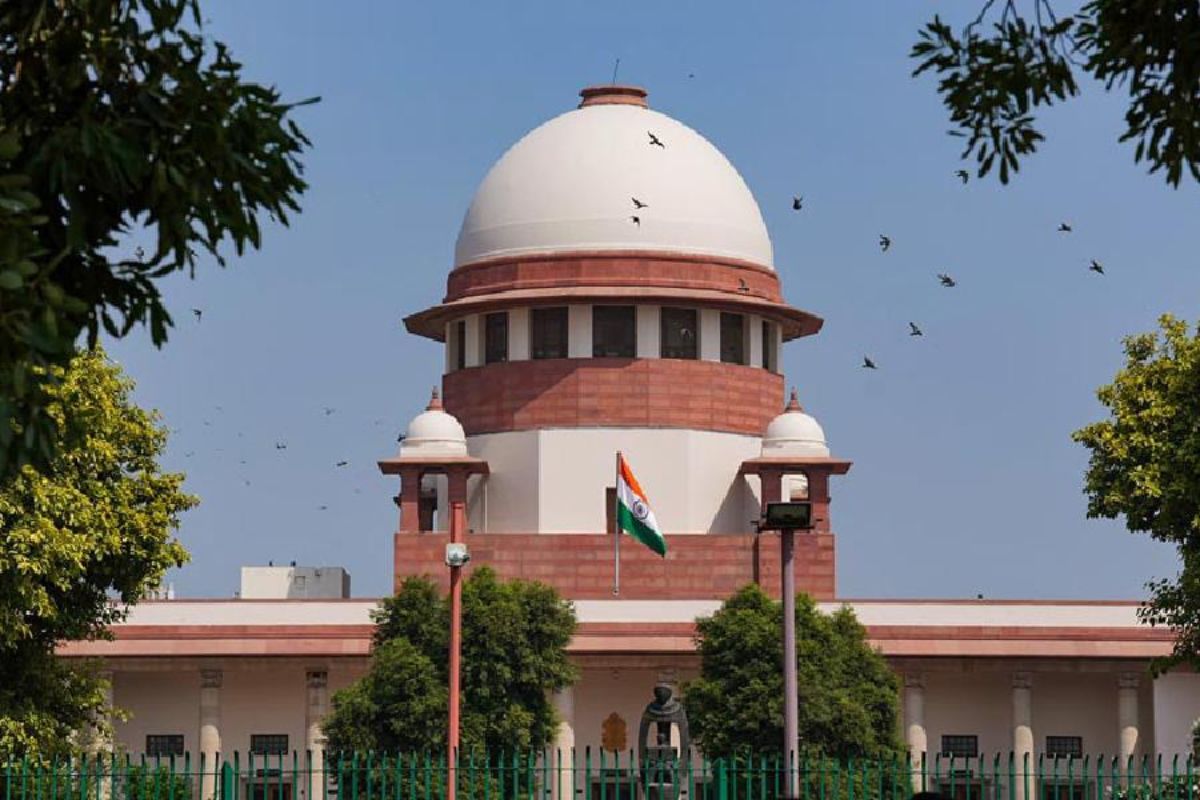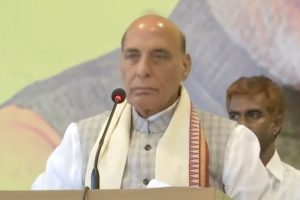The Supreme Court on Thursday reserved its verdict on a batch of petitions seeking recognition of Aligarh Muslim University as a Muslim minority educational institution by virtue of being founded by the Muslims and the successor of the Muhammadan Anglo Oriental College (MAO College), protected under Article 30 of the constitution guaranteeing the right of minorities to establish and administer educational institutions.
The Muhammadan Anglo Oriental College was established by Sir Syed Ahmad Khan way back in 1875. On the importance of AMU for the Muslim community, the court was told that Muslims have just 1.7% presence in the institution of higher learning like IITs which is far behind the presence of the lowest strata of the society in the educational institutions.
A seven-judge constitution bench comprising Chief Justice D Y Chandrachud, Justice Sanjiv Khanna, Justice Surya Kant, Justice J B Pardiwala, Justice Dipankar Datta, Justice Manoj Misra and Justice Satish Chandra Sharma, reserved the order on the conclusion of the hearing that was spread over eight days – starting from January 9 and concluding today – February 1, 2024.
The core questions for determination by the constitution bench are whether the Aligarh Muslim University was founded by the Muslims and when the Muhammadan Anglo-Oriental College was transformed into AMU in 1920 by the AMU Act, did it also carry with it the tag of (MAO College) being a Muslim minority institution.
The AMU Act was enacted in 1920 by the Central Legislative Council under British colonialist.
The seven-judge constitution bench hearing, relating to the minority character of AMU, arises from two earlier top court references of 1981 and 2019 for a relook at the correctness of the 1967 judgment by a five-judge constitution bench that had ruled that AMU was a central university and did not have a status of a Muslim minority educational institution.
In their rejoinder arguments, senior advocates Rajeev Dhavan and Kapil Sibal, told the constitution bench that all through its existence right from 1920, the AMU’s administration starting from University Court, academic council and the executive council had the predominant presence of Muslims and even the ‘Visitor’ who, during British period was Governor General, later Governor of Uttar Pradesh acted on the advice of the University Court. The constitution bench was told that the Chancellor, Vice-Chancellor and the Pro Vice-Chancellor of the AMU were appointed by the University Court.
Sibal questioned the arguments advanced by the Central government and others, opposing the recognition of the minority cherisher of the AMU, that non-Muslims were administering the AMU.
Sibal wondered what the basis of such an argument was. He said Article 30 of the constitution guarantees “the right of minorities to establish and administer educational institutions” but does not mandate that all its faculty and administration be packed with Muslims only.
He said if one were to accept such a position, then no institution in the country would have a minority character. He said that St. Stephen College in Delhi University has no more than 5 per cent Christians in its faculty and even in the administration.
Dwelling on the importance of AMU for the Muslims, Sibal told the bench that Muslims have just 1.7 per cent presence amongst the student’s in the institutions of higher learning, which is far short of the presence of SC/ST and the OBCs. He said by designating AMU as an institution of national importance with no minority status, 50 per cent of the seats would go to SC/ST and the OBCs and 10% to the EWS, thereby leaving nothing for the Muslims.
Sibal said it would be a sad day if AMU is stripped of its minority character for the reasons that have no sanction of the constitution and the law, that too when AMU is adhering to all the rules and regulations governing the functioning of the universities across the country.











